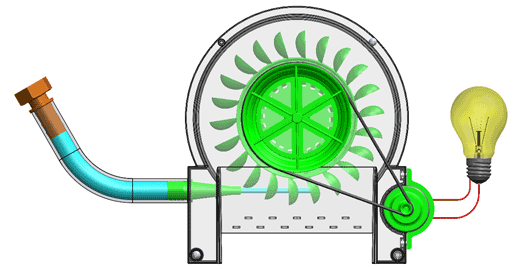
Summary
The basic concepts of energy science—work, force, energy and power—and their relationships are explored in this unit. Students investigate the physical properties of energy through work and power and perform energy-related calculations and unit conversions. A hands-on model waterwheel activity engages students in learning how to calculate the amount of power produced and work done.Engineering Connection
The fundamental physics concepts of work, force, energy and power are applied in many fields of engineering. Devices that mechanical engineers design to move, lift, push, and pull require energy to function, such as construction and agricultural equipment, elevators and escalators, and airplanes and rockets. An engineer must know how to calculate the power and energy needed to do the necessary work or provide the required heat.
Subscribe
Get the inside scoop on all things TeachEngineering such as new site features, curriculum updates, video releases, and more by signing up for our newsletter!Unit Schedule
Suggested activity order:
More Curriculum Like This

Demos and activities in this lesson are intended to illustrate the basic concepts of energy science—work, force, energy, power etc., and the relationships among them.

tudents create a model waterwheel and use it to calculate the amount of power produced and work done.

Through the continuing storyline of the Rockets unit, this lesson looks more closely at Spaceman Rohan, Spacewoman Tess, their daughter Maya, and their challenges with getting to space, setting up satellites, and exploring uncharted waters via a canoe. Students are introduced to the ideas of thrust,...
Copyright
© 2020 by Regents of the University of ColoradoLast modified: December 2, 2020






User Comments & Tips